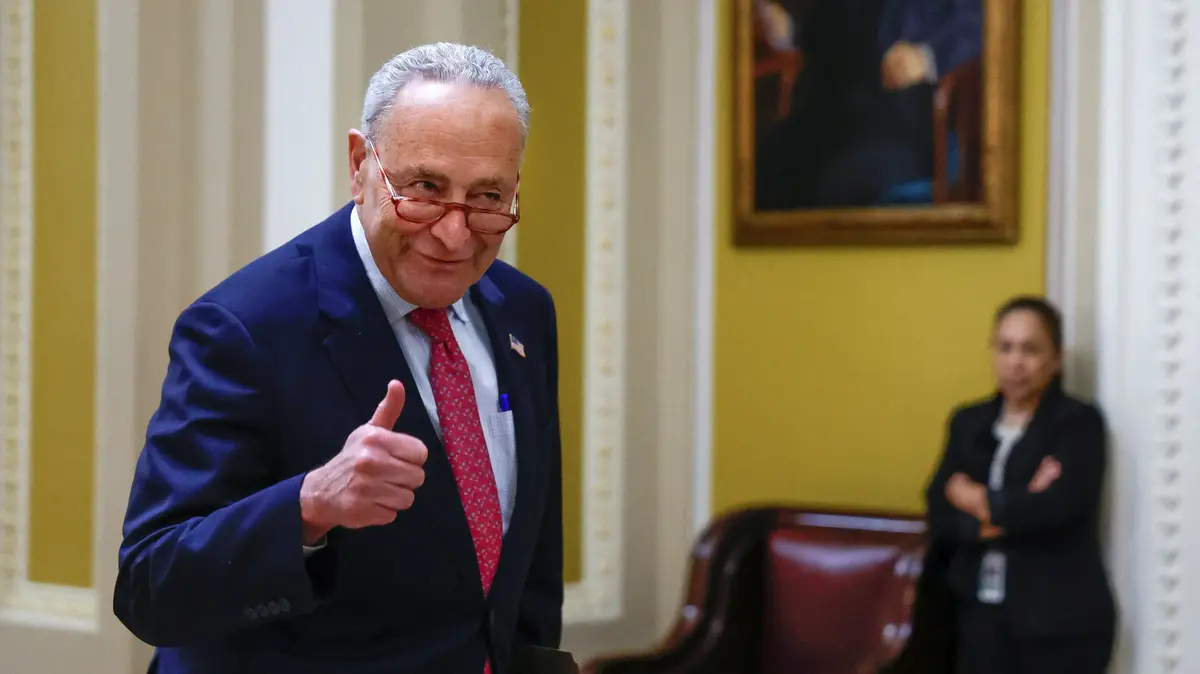Democrats attacked the president for failing to consult with Congress before the Suleimani assassination, claiming a constitutional duty breach • Trump's original answer left them mouth-watering
The President of the United States sent a rather unusual tweet yesterday on his virtual statements on Iran. Just hours after threatening to hit 52 targets across the Islamic Republic, Donald Trump referred in simple but reasoned language to the legal implications of his Middle East operations.
"The posts I post on social media will henceforth serve as a message to the United States Congress that if Iran attacks American personalities or targets, the United States will respond quickly and with full force - disproportionately. No such legal notice is required, but I provide it nonetheless," The President wrote.
The stinging post is basically a sophisticated, reticent response from the President to criticism of the assassination and Suleimani, as well as his statements that he will strike Iran if he chooses to respond to the assassination, violating US law on the need to announce and approve Congress, the legislative arm of the administration. For military action.
Last President to declare war, Franklin Delano Roosevelt // Photo: Wikipedia
In spite of the very neat image of the American system of government and its laws, the field of declaration of war and the need to obtain the approval of the legislature has always been in dispute. Under the US Constitution, Congress may declare war "but the procedure is undefined and has never been fully legalized.
In fact, US presidents have used Congress to declare war only five times in American history, the last of which was the declaration of war by US President Franklin Delano Roosevelt against the Axis states in 1942.
Has the President passed the law?
In the absence of a formal declaration of war, most of the United States' conflicts over the last century have been approved by Congress, such as the Vietnam War and the War on Terror, or were part of a United Nations decision, such as the Korean War and the Gulf War.
In 1973, following the Vietnam War trauma to which the United States entered phases without an official declaration, a law was enacted that required the President of the United States to appeal to the Legislature to declare war and to inform Congress when it intended to use military force.
Critics of President Trump say his conduct around the assassination of Kassem Suleimani is a violation of the law. Similar criticism was also heard of President Clinton over the 1993 bombing campaign in Serbia.
Will the response require approval? Wall painting in memory of Suleimani in Tehran // Photo: APP
But as President Trump made clear in his various tweets, the Suleimani assassination was aimed at preventing US troops from being wounded and also serving as a response to gunfire at US forces in Iraq. Indeed, the law enacted in 1973 makes it clear that a president can order the use of military force in the event of "an attack on the United States, its overseas or military assets," without informing Congress or seeking its approval.
The conflict with the Legislative Assassination Legislature is only part of the rift between the Democratic House, which insists on the impeachment process against the President, and the White House, but in the case of widespread and planned action against Iran, it may prove to be problematic for the administration.












/cloudfront-eu-central-1.images.arcpublishing.com/prisa/KMEYMJKESBAZBE4MRBAM4TGHIQ.jpg)


